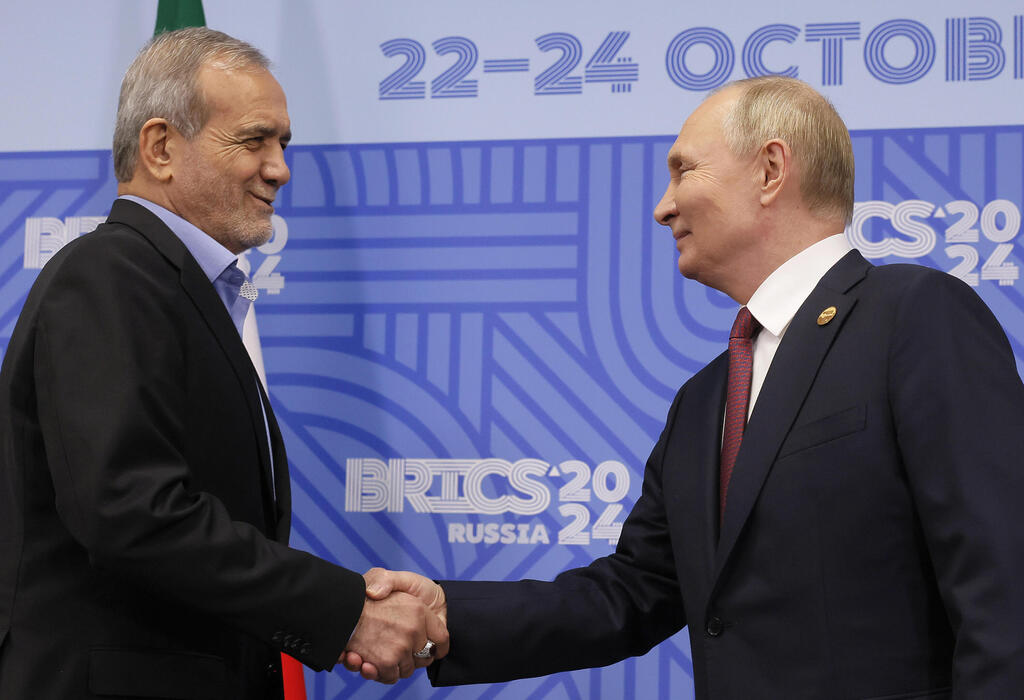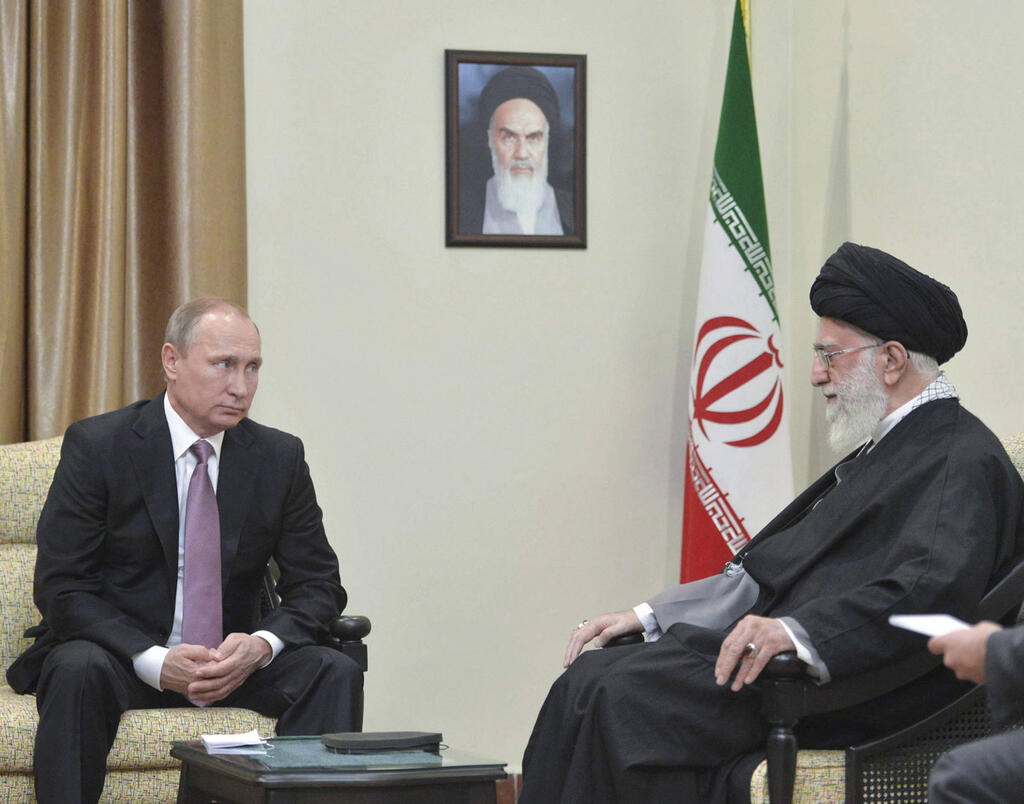Getting your Trinity Audio player ready...
On October 31, Russian Foreign Minister Sergei Lavrov confirmed that Russia and Iran are finalizing a comprehensive treaty to enhance defense cooperation. This strategic alignment reflects deepening ties between two authoritarian regimes, raising alarm across Israel and beyond. Both countries are leveraging their partnership to challenge the U.S.-led international order while pursuing their geopolitical ambitions.
However, their collaboration is marked by both opportunity and tension. The proposed treaty underscores Russia and Iran’s shared goals of diminishing Western influence in the Middle East.
2 View gallery


Iranian President Masoud Pezeshkian and Russian President Vladimir Putin
(Photo: Maxim Shemetov, Pool Photo via AP)
Together, the two nations control nearly 40% of the world’s proven natural gas reserves and 20% of its oil reserves, granting them substantial leverage over global energy markets. Both are also heavily involved in the world’s deadliest conflicts—Ukraine and Syria—while influencing issues such as nuclear proliferation, cybersecurity and disinformation campaigns. Despite these commonalities, Iran’s trust in Russia is eroding.
Supporters of the Islamic Republic, including some officials, have criticized Russia for its failure to supply Sukhoi fighter jets that could bolster Iran’s defenses against Israeli airstrikes. The recent Israeli strikes on Iranian targets have intensified anti-Russian sentiment among Iranian citizens, who increasingly question Tehran’s reliance on Moscow. Still, Iranian Supreme Leader Ali Khamenei’s pro-Russian stance has prevented Tehran from recalibrating its approach.
The Ukraine war: A catalyst for cooperation
The ongoing war in Ukraine has further entwined Russian and Iranian interests. Western sanctions have crippled Russia’s ability to replenish its arsenal, forcing Moscow to depend on Tehran for military supplies, including drones and missiles. This reliance represents a reversal of historical trends, where military technology flowed from Russia to Iran.
Yet, ideological differences continue to hinder the partnership. While Russia has criticized Israeli actions in Gaza, it does not share Iran’s uncompromising opposition to Israel’s existence. Such divergences reveal the limits of their strategic alignment, even as they work toward common objectives.
Get the Ynetnews app on your smartphone: Google Play: https://bit.ly/4eJ37pE | Apple App Store: https://bit.ly/3ZL7iNv
Russia’s partnerships extend beyond Iran to include North Korea and China, forming an emerging axis of authoritarian states. North Korea has reportedly discussed providing direct military support to Russia, in stark contrast to Iran’s refusal to send troops.
Meanwhile, China’s growing influence in the Middle East, mainly through its Belt and Road Initiative, further complicates this geopolitical equation. China’s economic and political ties with Russia and Iran strengthen this bloc, creating yet a formidable challenge to Western dominance. While these nations have significant ideological differences, this pragmatic cooperation undermines U.S. power and reshapes global power dynamics.
Iran’s diplomatic tightrope
Iran’s foreign policy remains complex and contradictory. In August 2023, Tehran publicly congratulated Ukraine on its Independence Day, contrasting sharply with its military support for Russia. This gesture highlighted Iran’s attempt to maintain diplomatic flexibility while addressing growing domestic criticism of its alignment with Moscow. Iran seeks to balance its partnership with other geopolitical interests by signaling its independence from Russia.
 Jennifer Teale
Jennifer TealeThis balancing act reflects Tehran’s desire to preserve its options in the increasingly polarized global landscape. Both view the U.S.-led world order as vulnerable and are working to exploit its perceived weaknesses. Their collaboration on energy, military technology and disinformation campaigns also poses a significant challenge to Western efforts to maintain stability in the Middle East and beyond.
However, the alliance’s internal contradictions—rooted in divergent ideological priorities and strategic interests— currently limit its cohesion. Moscow’s reluctance to fully embrace Tehran’s agenda, coupled with Iran’s cautious overtures to Ukraine, underscores the fragile nature of their partnership.


